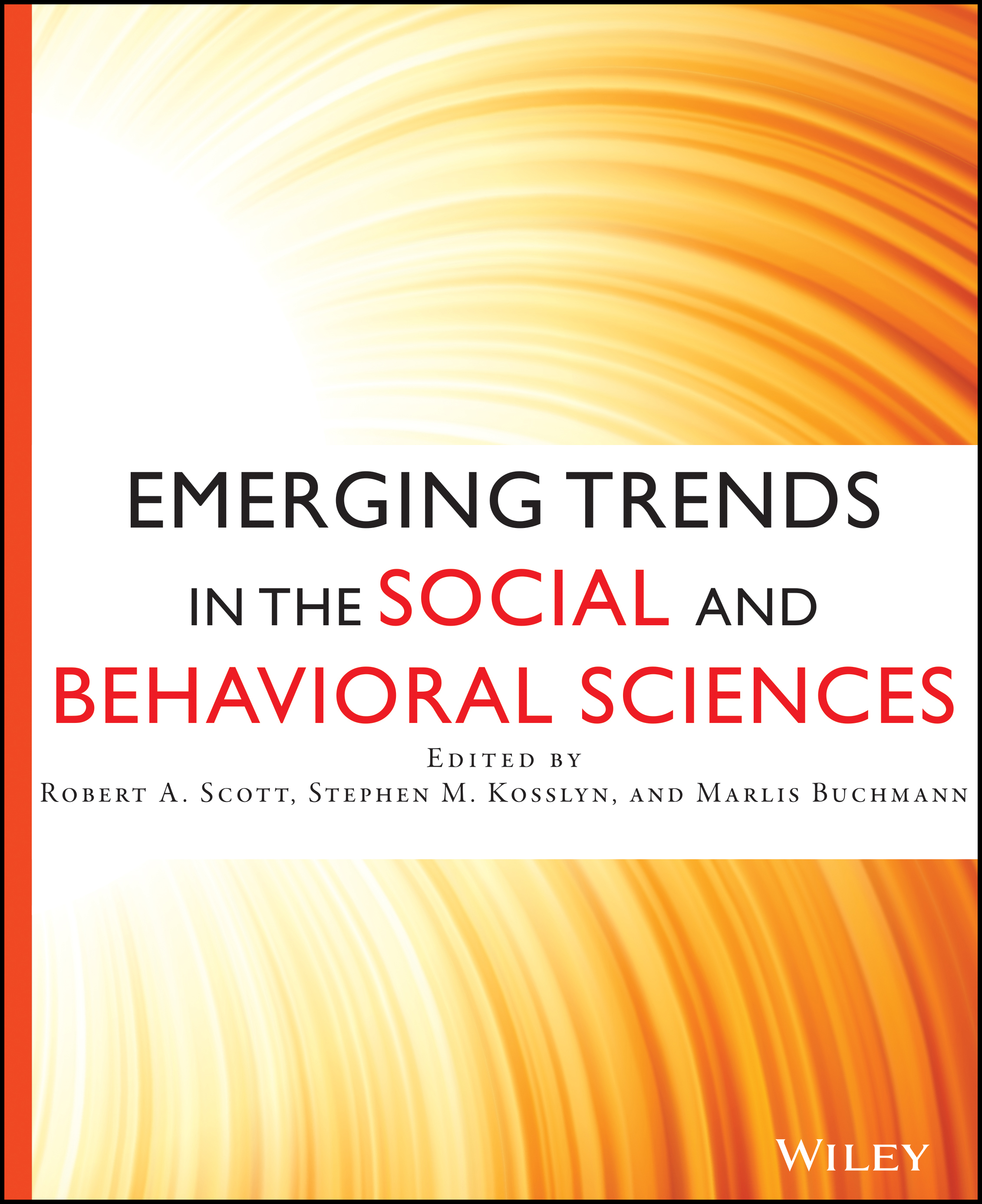A Bio-Social-Cultural Approach to Early Cognitive Development: Entering the Community of Minds
Katherine Nelson
City University of New York Graduate Center, New York, New York, USA
Search for more papers by this authorKatherine Nelson
City University of New York Graduate Center, New York, New York, USA
Search for more papers by this authorAbstract
Important cognitive changes take place during the preschool years in addition to the acquisition of a first language. A bio-social-cultural (BSC) theory is needed to explicate the relation between language and cognition during this period of development. The foundations of the BSC approach in evolutionary and developmental systems theory are noted and applied to the emergence of autobiographical memory and the understanding of one's own and other minds within the general conception of “entering the community of minds” a conceptual framework for the social-cultural components of this approach. The need for further theoretical and empirical research including neurological change during this period is indicated.
References
- Apperly, I. (2011). Mindreaders: the cognitive basis of “Theory of Mind”. New York, NY: Psychology Press.
-
Astington, J. W., & Baird, J. (2005). Why language matters to theory of mind. New York, NY: Oxford University Press.
10.1093/acprof:oso/9780195159912.001.0001 Google Scholar
- Baron-Cohen, S., Tager-Flusberg, H., & Cohen, D. (2000). Understanding other minds: perspectives from developmental cognitive neuroscience. New York, NY: Oxford University Press.
- Bauer, P. (2007). Remembering the times of our lives: memory in infancy and beyond. Mahwah, NJ: Erlbaum.
-
Bauer, P. J., & Fivush, R. (2013). Wiley-Blackwell handbook on the development of children's memory. New York: Wiley-Blackwell.
10.1002/9781118597705 Google Scholar
-
Bogdan, R. J. (1997). Interpreting minds. Cambridge, MA: MIT Press.
10.7551/mitpress/3878.001.0001 Google Scholar
-
Bogdan, R. J. (2010). Our own minds: sociocultural grounds for self-consciousness. Cambridge, MA: MIT Press.
10.7551/mitpress/9780262026376.001.0001 Google Scholar
- Carroll, S. B. (2005). Endless forms most beautiful: the new science of Evo Devo. New York, NY: Norton.
- Clark, A. (1997). Being there: putting brain, body, and world together again. Cambridge, MA: MIT Press.
- Donald, M. (1991). Origins of the modern mind. Cambridge, MA: Harvard University Press.
-
Fivush, R., & Haden, C. A. (2003). Autobiographical memory and the construction of a narrative self: developmental and cultural perspectives. Mahwah, NJ: Erlbaum.
10.4324/9781410607478 Google Scholar
- Glenberg, A. M., Witt, J. K., & Metcalfe, J. (2013). From the revolution to embodiment: 25 years of cognitive psychology. Perspectives on Psychological Science, 8, 575–585.
- Hrdy, S. B. (1999). Mother nature: a history of mothers, infants, and natural selection. New York, NY: Pantheon Books.
- Hutto, D. D. (2008). Folk Psychological narratives: the sociocultural basis of understanding reasons. Cambridge, MA: MIT Press.
- Jablonka, E., & Lamb, M. J. (2005). Evolution in four dimensions: genetic, epigenetic, behavioral, and symbolic variation in the history of life. Cambridge, MA: MIT Press.
- Nelson, K. (1986). Event knowledge: structure and function in development. Hillsdale, NJ: Lawrence Erlbaum Associates.
-
Nelson, K. (1996) Language in cognitive development: the emergence of the mediated mind. New York, NY: Cambridge University Press.
10.1017/CBO9781139174619 Google Scholar
- Nelson, K. (2003a). Self and social functions: individual autobiographical memory and collective narrative. Memory, 11, 125–136.
- Nelson, K. (2003b). The role of narrative in the emergence of conscious awareness. In T. McVay, O. Flanagan & G. Fireman (Eds.), Narrative and consciousness: literature, psychology, and the brain (pp. 17–36). New York, NY: Oxford University Press.
-
Nelson, K. (2005). Language pathways to the community of minds. In J. W. Astington & J. Baird (Eds.), Why language matters to theory of mind (pp. 26–49). New York, NY: Oxford University Press.
10.1093/acprof:oso/9780195159912.003.0002 Google Scholar
-
Nelson, K. (2007). Young minds in social worlds: experience, meaning, and memory. Cambridge, MA: Harvard University Press.
10.4159/9780674041400 Google Scholar
- Nelson, K. (2013). Sociocultural theories of memory development. In P. J. Bauer & R. Fivush (Eds.), Wiley-Blackwell handbook on the development of children's memory. New York, NY: Wiley-Blackwell.
- Nelson, K., & Fivush, R. (2004). The emergence of autobiographical memory: a social cultural developmental theory. Psychological Review, 111, 486–511.
- Nelson, K., Plesa, D., Goldman, S., Henseler, S., Presler, N., & Walkenfeld, F. F. (2002). Entering a community of minds: an experiential approach to theory of mind. Human Development, 46, 1–23.
- Oyama, S. (1985). The ontogeny of information: developmental systems and evolution. New York, NY: Cambridge University Press.
- Oyama, S., Griffiths, P. E., & Gray, R. D. (2001). Cycles of contingency: developmental systems and evolution. Cambridge, MA: MIT Press.
- Piaget, J. (1926). The language and thought of the child. New York, NY: Harcourt, Brace.
-
Roberts, K. P., & Blades, M. (2000). Children's source monitoring. Mahwah, NJ: Erlbaum Associates.
10.4324/9781410606501 Google Scholar
- Sameroff, A. J., & Haith, M. M. (1996). The five to seven year shift: the age of reason and responsibility. Chicago, IL: Chicago University Press.
-
Thelen, E., & Smith, L. B. (1994). A dynamic systems approach to the development of cognition and action. Cambridge, MA: MIT Press.
10.7551/mitpress/2524.001.0001 Google Scholar
- Tomasello, M. (1999). The cultural origins of human cognition. Cambridge, MA: Harvard University Press.
-
Tomasello, M. (2008). The origins of human communication. Cambridge, MA: MIT Press.
10.7551/mitpress/7551.001.0001 Google Scholar
-
Varela, F. J., Thompson, E., & Rosch, E. (1991). The embodied mind. Cambridge, MA: MIT Press.
10.7551/mitpress/6730.001.0001 Google Scholar
-
Vygotsky, L. (1962 (orig 1934)). Thought and language. Cambridge, MA: MIT Press.
10.1037/11193-000 Google Scholar
-
Wang, Q. (2013). The Cultured Self and Remembering. In P. J. Bauer & R. Fivush (Eds.), Wiley-Blackwell handbook on the development of children's memory. New York, NY: Wiley-Blackwell.
10.1002/9781118597705.ch26 Google Scholar
Further Reading
- Rochat, P. (2001). The infant's world. Cambridge, MA: Harvard University Press.
Citing Literature
Browse other articles of this reference work:



